Tag #paradigm
277 papers:
 FSCD-2019-SantoPU
FSCD-2019-SantoPU - Modal Embeddings and Calling Paradigms (JES, LP, TU), p. 20.
- IFM-2019-KaramiOR #evaluation #interactive #summary
- Summary of: An Evaluation of Interaction Paradigms for Active Objects (FK, OO, TR), pp. 529–533.
 CIKM-2018-KhattabHS #in memory #manycore #named #polymorphism
CIKM-2018-KhattabHS #in memory #manycore #named #polymorphism- PolyHJ: A Polymorphic Main-Memory Hash Join Paradigm for Multi-Core Machines (OK, MH, OS), pp. 1323–1332.
 KDD-2018-YeZXZGD #mobile #parallel #performance #recommendation
KDD-2018-YeZXZGD #mobile #parallel #performance #recommendation- Multi-User Mobile Sequential Recommendation: An Efficient Parallel Computing Paradigm (ZY, LZ, KX, WZ, YG, YD), pp. 2624–2633.
 KDD-2017-0013H #learning #predict
KDD-2017-0013H #learning #predict- Constructivism Learning: A Learning Paradigm for Transparent Predictive Analytics (XL0, JH), pp. 285–294.
- IFM-2016-LuckcuckCW #formal method #java #safety
- A Formal Model of the Safety-Critical Java Level 2 Paradigm (ML, AC, AJW), pp. 226–241.
 Onward-2016-KurajJ #distributed #programming
Onward-2016-KurajJ #distributed #programming- Exploring the role of sequential computation in distributed systems: motivating a programming paradigm shift (IK, DJ0), pp. 145–164.
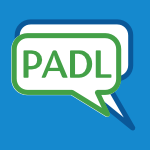 PADL-2016-HertumDJD #interactive
PADL-2016-HertumDJD #interactive- The KB Paradigm and Its Application to Interactive Configuration (PVH, ID, GJ, MD), pp. 13–29.
 VLDB-2015-PottiP #approximate #named #query
VLDB-2015-PottiP #approximate #named #query- DAQ: A New Paradigm for Approximate Query Processing (NP, JMP), pp. 898–909.
 EDM-2015-Gonzalez-Brenes #adaptation #empirical #evaluation #predict
EDM-2015-Gonzalez-Brenes #adaptation #empirical #evaluation #predict- Your Model Is Predictive - but Is It Useful? Theoretical and Empirical Considerations of a New Paradigm for Adaptive Tutoring Evaluation (JPGB, YH0), pp. 187–194.
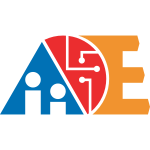 AIIDE-2015-LiapisY #design #sketching
AIIDE-2015-LiapisY #design #sketching- Refining the Paradigm of Sketching in AI-Based Level Design (AL, GNY), pp. 128–134.
 FDG-2015-KoenitzL #authoring #interactive
FDG-2015-KoenitzL #authoring #interactive- Practicalities and Ideologies, (Re)-Considering the Interactive Digital Narrative Authoring Paradigm (HK, SL).
 DUXU-UI-2015-BrahnamW #design #towards
DUXU-UI-2015-BrahnamW #design #towards- Re/Framing Virtual Conversational Partners: A Feminist Critique and Tentative Move Towards a New Design Paradigm (SB, MW), pp. 172–183.
 ICEIS-v3-2015-MejriG #case study #comparative #evaluation #flexibility
ICEIS-v3-2015-MejriG #case study #comparative #evaluation #flexibility- Evaluation of Paradigms Enabling Flexibility — BPMSs Comparative Study (AM, SAG), pp. 291–298.
 CIKM-2015-BhowmickDCA #feedback #query #semistructured data #visual notation
CIKM-2015-BhowmickDCA #feedback #query #semistructured data #visual notation- Interruption-Sensitive Empty Result Feedback: Rethinking the Visual Query Feedback Paradigm for Semistructured Data (SSB, CED, BC, MHA), pp. 723–732.
 SEKE-2015-CheP #architecture #design #development #evaluation
SEKE-2015-CheP #architecture #design #development #evaluation- An Evaluation Study of Architectural Design Decision Paradigms in Global Software Development (MC, DEP), pp. 158–163.
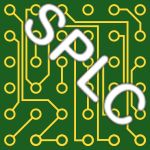 SPLC-2015-BeekFG #adaptation #analysis #product line
SPLC-2015-BeekFG #adaptation #analysis #product line- Applying the product lines paradigm to the quantitative analysis of collective adaptive systems (MHtB, AF, SG), pp. 321–326.
 ICSE-v2-2015-LyonsO #coordination #named
ICSE-v2-2015-LyonsO #coordination #named- SOA4DM: Applying an SOA Paradigm to Coordination in Humanitarian Disaster Response (KL, CO), pp. 519–522.
 DAC-2015-ChenMRC #execution #performance
DAC-2015-ChenMRC #execution #performance- Opportunistic turbo execution in NTC: exploiting the paradigm shift in performance bottlenecks (HC, DM, SR, KC), p. 6.
 DAC-2015-RoyLUP #multi #named #optimisation #performance
DAC-2015-RoyLUP #multi #named #optimisation #performance- OSFA: a new paradigm of gate-sizing for power/performance optimizations under multiple operating conditions (SR, DL, JU, DZP), p. 6.
 DATE-2015-HanyuSOMNM #architecture #in memory #power management #reliability #towards
DATE-2015-HanyuSOMNM #architecture #in memory #power management #reliability #towards- Spintronics-based nonvolatile logic-in-memory architecture towards an ultra-low-power and highly reliable VLSI computing paradigm (TH, DS, NO, SM, MN, AM), pp. 1006–1011.
 DATE-2015-SarmaDGVN #self
DATE-2015-SarmaDGVN #self- Cyberphysical-system-on-chip (CPSoC): a self-aware MPSoC paradigm with cross-layer virtual sensing and actuation (SS, NDD, PG, NV, AN), pp. 625–628.
 CHI-PLAY-2014-CarterDNHG #game studies #human-computer #overview #research
CHI-PLAY-2014-CarterDNHG #game studies #human-computer #overview #research- Paradigms of games research in HCI: a review of 10 years of research at CHI (MC, JD, BN, MH, MRG), pp. 27–36.
 DUXU-DI-2014-CamposNNC #interface #usability
DUXU-DI-2014-CamposNNC #interface #usability- The Paradigm of Meta-interface as a Facilitator of Websites Usability and Accessibility (FFCC, EVN, MN, WFMC), pp. 81–91.
 DUXU-TMT-2014-Lamontagne #performance #smarttech
DUXU-TMT-2014-Lamontagne #performance #smarttech- Techno-Theoretical Paradigm: Performance, Fashion and Wearables (VL), pp. 153–162.
 DUXU-TMT-2014-SchneidermeierHW #comparative #evaluation #experience #usability
DUXU-TMT-2014-SchneidermeierHW #comparative #evaluation #experience #usability- Changing Paradigm — Changing Experience? — Comparative Usability Evaluation of Windows 7 and Windows 8 (TS, FH, CW), pp. 371–382.
 HCI-TMT-2014-Merlin #implementation #interactive #tool support
HCI-TMT-2014-Merlin #implementation #interactive #tool support- IntNovate a Toolkit to Ease the Implementation of Every Interaction Paradigm on Every Device (BM), pp. 331–339.
 LCT-NLE-2014-UzunosmanogluC #collaboration #learning #online
LCT-NLE-2014-UzunosmanogluC #collaboration #learning #online- Examining an Online Collaboration Learning Environment with the Dual Eye-Tracking Paradigm: The Case of Virtual Math Teams (SDU, MPÇ), pp. 462–472.
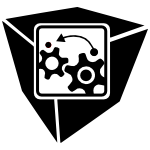 VISSOFT-2014-MartinezZMBKT #constraints #graph #product line #visualisation
VISSOFT-2014-MartinezZMBKT #constraints #graph #product line #visualisation- Feature Relations Graphs: A Visualisation Paradigm for Feature Constraints in Software Product Lines (JM, TZ, RM, TFB, JK, YLT), pp. 50–59.
 KDIR-2014-DistanteCVL #learning #online #plugin #topic
KDIR-2014-DistanteCVL #learning #online #plugin #topic- Enhancing Online Discussion Forums with a Topic-driven Navigational Paradigm — A Plugin for the Moodle Learning Management System (DD, LC, AV, ML), pp. 97–106.
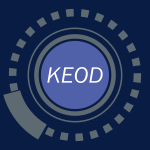 KEOD-2014-FreibergHP #knowledge-based #novel
KEOD-2014-FreibergHP #knowledge-based #novel- Clarification KBS as Consultation-Justification Mash Ups — Proposing a Novel Paradigm for All-in-One Knowledge-based Systems (MF, FH, FP), pp. 168–175.
 DAC-2014-SwaminathanLLKSN #architecture
DAC-2014-SwaminathanLLKSN #architecture- Steep Slope Devices: Enabling New Architectural Paradigms (KS, HL, XL, MSK, JS, VN), p. 6.
 ITiCSE-2013-Joel13a #education
ITiCSE-2013-Joel13a #education- A story paradigm for computer science education (WJJ), p. 362.
 DUXU-NTE-2013-MartinsMS #design #multi
DUXU-NTE-2013-MartinsMS #design #multi- Breaking Technological Paradigms — Sustainable Design in Air Transport Multi-mission (ETM, ITM, MMS), pp. 160–168.
 KDD-2013-CaoTCJ #named #online #social
KDD-2013-CaoTCJ #named #online #social- WiseMarket: a new paradigm for managing wisdom of online social users (CCC, YT, LC, HVJ), pp. 455–463.
 SEKE-2013-CheP #architecture #design #development
SEKE-2013-CheP #architecture #design #development- Exploring Architectural Design Decision Management Paradigms for Global Software Development (MC, DEP), pp. 8–13.
 SEKE-2013-KatoSWF #comparative #evaluation #programming
SEKE-2013-KatoSWF #comparative #evaluation #programming- Comparative Evaluation of Programming Paradigms: Separation of Concerns with Object-, Aspect-, and Context-Oriented Programming (FK, KS, HW, YF), pp. 594–599.
 ECOOP-2013-VakilianCMNJ #automation #composition #refactoring
ECOOP-2013-VakilianCMNJ #automation #composition #refactoring- A Compositional Paradigm of Automating Refactorings (MV, NC, RZM, SN, REJ), pp. 527–551.
 Onward-2013-MilicevicJGM #interactive #modelling #programming #web
Onward-2013-MilicevicJGM #interactive #modelling #programming #web- Model-based, event-driven programming paradigm for interactive web applications (AM, DJ, MG, DM), pp. 17–36.
 RE-2013-MahauxM #requirements #research
RE-2013-MahauxM #requirements #research- A new paradigm for applied requirements engineering research (MM, AM), pp. 353–356.
 SAC-2013-BruyninckxKHKGB #component #development #modelling
SAC-2013-BruyninckxKHKGB #component #development #modelling- The BRICS component model: a model-based development paradigm for complex robotics software systems (HB, MK, NH, GKK, LG, DB), pp. 1758–1764.
 DATE-2013-GaoBW #performance
DATE-2013-GaoBW #performance- A new paradigm for trading off yield, area and performance to enhance performance per wafer (YG, MAB, YW), pp. 1753–1758.
 DATE-2013-VenkataramaniRR #approximate #configuration management #design #named #quality
DATE-2013-VenkataramaniRR #approximate #configuration management #design #named #quality- Substitute-and-simplify: a unified design paradigm for approximate and quality configurable circuits (SV, KR, AR), pp. 1367–1372.
 CADE-2013-ErbaturEKLLMMNSS #analysis #encryption #protocol #symmetry #unification
CADE-2013-ErbaturEKLLMMNSS #analysis #encryption #protocol #symmetry #unification- Asymmetric Unification: A New Unification Paradigm for Cryptographic Protocol Analysis (SE, SE, DK, ZL, CL, CM, JM, PN, SS, RS), pp. 231–248.
 ICLP-J-2013-GottlobMP #decidability
ICLP-J-2013-GottlobMP #decidability- Combining decidability paradigms for existential rules (GG, MM, AP), pp. 877–892.
 ICEIS-J-2012-BanosBM #challenge
ICEIS-J-2012-BanosBM #challenge- Blog Preservation: Current Challenges and a New Paradigm (VB, NB, YM), pp. 29–51.
 ICEIS-v3-2012-CaronV #design #enterprise #information management #process
ICEIS-v3-2012-CaronV #design #enterprise #information management #process- Moving Across Paradigms between the Process Design and Enactment Phase in Enterprise Information Systems (FC, JV), pp. 218–223.
 ICPR-2012-HouHZQ #named #retrieval
ICPR-2012-HouHZQ #named #retrieval- Bag-of-feature-graphs: A new paradigm for non-rigid shape retrieval (TH, XH, MZ, HQ), pp. 1513–1516.
 ICPR-2012-MartelliCBTM #detection #similarity
ICPR-2012-MartelliCBTM #detection #similarity- Joining feature-based and similarity-based pattern description paradigms for object detection (SM, MC, LB, DT, VM), pp. 2702–2705.
 MLDM-2012-CeciAVMPG #classification #relational
MLDM-2012-CeciAVMPG #classification #relational- Transductive Relational Classification in the Co-training Paradigm (MC, AA, HLV, DM, EP, HG), pp. 11–25.
 SIGIR-2012-Broder #information retrieval
SIGIR-2012-Broder #information retrieval- IR paradigms in computational advertising (AZB), p. 1019.
 ICSE-2012-DeLineBRJR #debugging #experience #industrial
ICSE-2012-DeLineBRJR #debugging #experience #industrial- Debugger Canvas: Industrial experience with the code bubbles paradigm (RD, AB, KR, JJ, SPR), pp. 1064–1073.
 SAC-2012-GocicS #process
SAC-2012-GocicS #process- Service-oriented paradigm for analyzing hydrological processes (MG, DS), pp. 1994–1995.
 CC-2012-MarronLB #analysis #programming
CC-2012-MarronLB #analysis #programming- Programming Paradigm Driven Heap Analysis (MM, OL, AB), pp. 41–60.
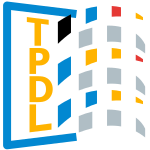 TPDL-2011-Sofronijevic #collaboration #library
TPDL-2011-Sofronijevic #collaboration #library- New Paradigm of Library Collaboration (AS), pp. 519–522.
 VLDB-2011-NandiJ #interactive
VLDB-2011-NandiJ #interactive- Guided Interaction: Rethinking the Query-Result Paradigm (AN, HVJ), pp. 1466–1469.
 DiGRA-2011-Therrien #design #game studies #video
DiGRA-2011-Therrien #design #game studies #video- “To Get Help, Please Press X” The Rise of the Assistance Paradigm in Video Game Design (CT).
 CHI-2011-BlanchO #benchmark #metric
CHI-2011-BlanchO #benchmark #metric- Benchmarking pointing techniques with distractors: adding a density factor to Fitts’ pointing paradigm (RB, MO), pp. 1629–1638.
 ICEIS-v4-2011-XinQ #information management
ICEIS-v4-2011-XinQ #information management- The Construction of Open Innovation Paradigm — A Perspective from the Knowledge Management (SX, WQ), pp. 401–406.
 CIKM-2011-RajputPGA
CIKM-2011-RajputPGA - A nugget-based test collection construction paradigm (SR, VP, PBG, JAA), pp. 1945–1948.
 Onward-2011-CorralSSGR #development #evolution #mobile #multi #platform
Onward-2011-CorralSSGR #development #evolution #mobile #multi #platform- Evolution of Mobile Software Development from Platform-Specific to Web-Based Multiplatform Paradigm (LC, AS, GS, AG, PR), pp. 181–183.
 AdaEurope-2011-Rodriguez-LopezG #abstraction #architecture #middleware
AdaEurope-2011-Rodriguez-LopezG #abstraction #architecture #middleware- Architecting a Common Bridge Abstraction over Different Middleware Paradigms (IRL, MGV), pp. 132–146.
 ASE-2011-TellB #development #process
ASE-2011-TellB #development #process- Supporting activity based computing paradigm in global software development (PT, MAB), pp. 508–511.
 ECSA-2010-MarcoGII #adaptation #learning #lifecycle #self
ECSA-2010-MarcoGII #adaptation #learning #lifecycle #self- Learning from the Cell Life-Cycle: A Self-adaptive Paradigm (ADM, FG, PI, RI), pp. 485–488.
 ITiCSE-2010-RagonisH #design #programming
ITiCSE-2010-RagonisH #design #programming- Linking different programming paradigms: thoughts about instructional design (NR, BH), p. 310.
 IFL-2010-MichelsPA #user interface
IFL-2010-MichelsPA #user interface- iTask as a New Paradigm for Building GUI Applications (SM, RP, PA), pp. 153–168.
 ICEIS-AIDSS-2010-KhriyenkoNT #named
ICEIS-AIDSS-2010-KhriyenkoNT #named- Context-Policy-Configuration — Paradigm of Intelligent Autonomous System Creation (OK, SN, VYT), pp. 198–205.
 ICEIS-J-2010-SandeSMFH10a #agile
ICEIS-J-2010-SandeSMFH10a #agile- A Strategy to Support Software Planning Based on Piece of Work and Agile Paradigm (DS, AS, RM, SF, EMH), pp. 104–118.
 ICEIS-J-2010-SilvaGFTG10a #monitoring
ICEIS-J-2010-SilvaGFTG10a #monitoring- Improving QoS Monitoring Based on the Aspect-Orientated Paradigm (MFdS, IMdSG, MF, MBFdT, AFG), pp. 421–435.
 ICPR-2010-ChenYKA #assessment #automation #reliability #video
ICPR-2010-ChenYKA #assessment #automation #reliability #video- A Reliability Assessment Paradigm for Automated Video Tracking Systems (CHC, YY, AK, MAA), pp. 480–483.
 SIGIR-2010-AggarwalZ #modelling #representation #visual notation
SIGIR-2010-AggarwalZ #modelling #representation #visual notation- Graphical models for text: a new paradigm for text representation and processing (CCA, PZ), pp. 899–900.
 SIGIR-2010-Harman #question
SIGIR-2010-Harman #question- Is the Cranfield paradigm outdated? (DH), p. 1.
 OOPSLA-2010-TianJZS #optimisation
OOPSLA-2010-TianJZS #optimisation- An input-centric paradigm for program dynamic optimizations (KT, YJ, EZZ, XS), pp. 125–139.
 ICSE-2010-BragdonRZKCKCAL #development #ide #user interface
ICSE-2010-BragdonRZKCKCAL #development #ide #user interface- Code bubbles: rethinking the user interface paradigm of integrated development environments (AB, SPR, RCZ, SK, WC, JK, CC, FA, JJLJ), pp. 455–464.
 ICSE-2010-EsfahaniM #adaptation #network #pervasive #self #social
ICSE-2010-EsfahaniM #adaptation #network #pervasive #self #social- Social computing networks: a new paradigm for engineering self-adaptive pervasive software systems (NE, SM), pp. 159–162.
 HPDC-2010-GunarathneWQF #in the cloud #parallel
HPDC-2010-GunarathneWQF #in the cloud #parallel- Cloud computing paradigms for pleasingly parallel biomedical applications (TG, TLW, JQ, GF), pp. 460–469.
 ICLP-2010-Fages10 #biology #logic
ICLP-2010-Fages10 #biology #logic- A Logical Paradigm for Systems Biology (FF), pp. 2–3.
 SEFM-2009-BersaniFPR #modelling #multi #realtime #verification
SEFM-2009-BersaniFPR #modelling #multi #realtime #verification- Integrated Modeling and Verification of Real-Time Systems through Multiple Paradigms (MMB, CAF, MP, MR), pp. 13–22.
 DiGRA-2009-StenrosS #game studies
DiGRA-2009-StenrosS #game studies- Commoditization of Helping Players Play: Rise of the Service Paradigm (JS, OS).
 CHI-2009-HsiaoCHCHH #comparison #multi
CHI-2009-HsiaoCHCHH #comparison #multi- To move or not to move: a comparison between steerable versus fixed focus region paradigms in multi-resolution tabletop display systems (CHH, LWC, TTH, MCC, JYjH, YPH), pp. 153–162.
 CHI-2009-YliriskuHNJ #design
CHI-2009-YliriskuHNJ #design- Framing design in the third paradigm (SY, VH, JN, AJ), pp. 1131–1140.
 HCI-AUII-2009-BekiarisKMP #concept #smarttech
HCI-AUII-2009-BekiarisKMP #concept #smarttech- An Interoperable Concept for Controlling Smart Homes — The ASK-IT Paradigm (EB, KK, AM, MP), pp. 377–386.
 HCI-AUII-2009-WelchLLWSW #artificial reality #interactive #social
HCI-AUII-2009-WelchLLWSW #artificial reality #interactive #social- An Affect-Sensitive Social Interaction Paradigm Utilizing Virtual Reality Environments for Autism Intervention (KCW, UL, CL, RW, NS, ZW), pp. 703–712.
 HCI-NIMT-2009-JacksonMBHVSI #interface
HCI-NIMT-2009-JacksonMBHVSI #interface- Continuous Control Paradigms for Direct Brain Interfaces (MMJ, RLMI, EB, SH, GRV, CS, AI), pp. 588–595.
 ICEIS-DISI-2009-ElarissKG #multi #optimisation #query
ICEIS-DISI-2009-ElarissKG #multi #optimisation #query- Query Melting — A New Paradigm for GIS Multiple Query Optimization (HEE, SK, DG), pp. 82–90.
 KDIR-2009-Exman #composition #named
KDIR-2009-Exman #composition #named- Interestingness — A Unifying Paradigm — Bipolar Function Composition (IE), pp. 196–201.
 KEOD-2009-RocheCDR #named
KEOD-2009-RocheCDR #named- Ontoterminology — A New Paradigm for Terminology (CR, MCC, LD, PR), pp. 321–326.
 PPDP-2009-DvorakGPW #programming
PPDP-2009-DvorakGPW #programming- Alternation as a programming paradigm (WD, GG, RP, SW), pp. 61–72.
 ASE-2009-Majumdar #aspect-oriented #migration #programming
ASE-2009-Majumdar #aspect-oriented #migration #programming- Migration from Procedural Programming to Aspect Oriented Paradigm (DM), pp. 712–715.
 CHI-2008-HuangT #design #interactive #mobile
CHI-2008-HuangT #design #interactive #mobile- Breaking the disposable technology paradigm: opportunities for sustainable interaction design for mobile phones (EMH, KNT), pp. 323–332.
 CSCW-2008-EgelmanBI #product line
CSCW-2008-EgelmanBI #product line- Family accounts: a new paradigm for user accounts within the home environment (SE, AJBB, KMI), pp. 669–678.
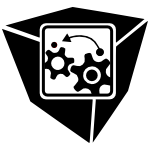 SOFTVIS-2008-CarneiroMM #comprehension #process #visualisation
SOFTVIS-2008-CarneiroMM #comprehension #process #visualisation- Combining software visualization paradigms to support software comprehension activities (GdFC, RCM, MGM), pp. 201–202.
 CAiSE-2008-MullerRH #adaptation #data-driven #process
CAiSE-2008-MullerRH #adaptation #data-driven #process- A New Paradigm for the Enactment and Dynamic Adaptation of Data-Driven Process Structures (DM, MR, JH), pp. 48–63.
 TOOLS-EUROPE-2008-KuhlemannARL #composition #design pattern #multi
TOOLS-EUROPE-2008-KuhlemannARL #composition #design pattern #multi- A Multiparadigm Study of Crosscutting Modularity in Design Patterns (MK, SA, MR, RELH), pp. 121–140.
 SAC-2008-SeifertWK #algorithm #detection #divide and conquer #interactive
SAC-2008-SeifertWK #algorithm #detection #divide and conquer #interactive- Application of divide-and-conquer algorithm paradigm to improve the detection speed of high interaction client honeypots (CS, IW, PK), pp. 1426–1432.
 CASE-2008-ReveliotisR #multi #resource management
CASE-2008-ReveliotisR #multi #resource management- Conflict resolution in multi-vehicle systems: A resource allocation paradigm (SAR, ER), pp. 115–121.
 DAC-2008-FraerKM #synthesis
DAC-2008-FraerKM #synthesis- A new paradigm for synthesis and propagation of clock gating conditions (RF, GK, MKM), pp. 658–663.
 DATE-2008-VermaBI #design #latency
DATE-2008-VermaBI #design #latency- Variable Latency Speculative Addition: A New Paradigm for Arithmetic Circuit Design (AKV, PB, PI), pp. 1250–1255.
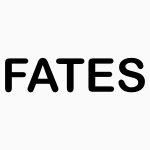 TestCom-FATES-2008-ShuCLLSL #framework #named #network #security #testing
TestCom-FATES-2008-ShuCLLSL #framework #named #network #security #testing- VCSTC: Virtual Cyber Security Testing Capability — An Application Oriented Paradigm for Network Infrastructure Protection (GS, DC, ZL, NL, LS, DL), pp. 119–134.
 DocEng-2007-BlouinB #documentation
DocEng-2007-BlouinB #documentation- Mapping paradigm for document transformation (AB, OB), pp. 219–221.
 ITiCSE-2007-VilnerZG #case study #concept #object-oriented
ITiCSE-2007-VilnerZG #case study #concept #object-oriented- Fundamental concepts of CS1: procedural vs. object oriented paradigm — a case study (TV, EZ, JGE), pp. 171–175.
 HIMI-MTT-2007-GeislerERPSG #interactive #scalability
HIMI-MTT-2007-GeislerERPSG #interactive #scalability- Fovea-Tablett®: A New Paradigm for the Interaction with Large Screens (JG, RE, NR, EPB, CS, SG), pp. 278–287.
 SIGIR-2007-JansenSB #learning #online
SIGIR-2007-JansenSB #learning #online- Viewing online searching within a learning paradigm (BJJ, BKS, DLB), pp. 859–860.
 CASE-2007-Ho #optimisation #towards
CASE-2007-Ho #optimisation #towards- Towards a New Paradigm for Optimization (YCH), p. 97–?.
 CASE-2007-SunFSFCD #analysis #overview
CASE-2007-SunFSFCD #analysis #overview- Decision Paradigms in the Semiconductor Supply Chain: A Survey and Analysis (YS, ALF, DLS, JWF, TEC, BMD), pp. 106–110.
 DATE-2007-SheldonVL #design #interactive #using
DATE-2007-SheldonVL #design #interactive #using- Interactive presentation: Soft-core processor customization using the design of experiments paradigm (DS, FV, SL), pp. 821–826.
 SOSP-2007-AguileraMSVK #distributed #named #scalability
SOSP-2007-AguileraMSVK #distributed #named #scalability- Sinfonia: a new paradigm for building scalable distributed systems (MKA, AM, MAS, ACV, CTK), pp. 159–174.
 SIGMOD-2006-Gutmans #named #php #web
SIGMOD-2006-Gutmans #named #php #web- PHP: supporting the new paradigm of situational and composite web applications (AG), p. 707.
 VLDB-2006-WangRGB #multi #named #optimisation #query
VLDB-2006-WangRGB #multi #named #optimisation #query- State-Slice: New Paradigm of Multi-query Optimization of Window-based Stream Queries (SW, EAR, SG, SB), pp. 619–630.
 WCRE-2006-Briand #challenge #reverse engineering
WCRE-2006-Briand #challenge #reverse engineering- The Experimental Paradigm in Reverse Engineering: Role, Challenges, and Limitations (LCB), pp. 3–8.
 EDOC-2006-Ejiri #generative #network
EDOC-2006-Ejiri #generative #network- Paradigm Shift of Telecommunications Services and Management for NGN (Next Generation Networks) (ME).
 ICEIS-AIDSS-2006-PintoGS #data mining #database #mining
ICEIS-AIDSS-2006-PintoGS #data mining #database #mining- Data Mining as a New Paradigm for Business Intelligence in Database Marketing Projects (FMP, PG, MFS), pp. 144–149.
 ICSE-2006-Ruthruff #program analysis
ICSE-2006-Ruthruff #program analysis- Experimental program analysis: a new paradigm for program analysis (JRR), pp. 977–980.
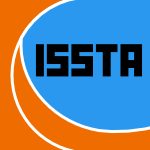 ISSTA-2006-RuthruffER #program analysis
ISSTA-2006-RuthruffER #program analysis- Experimental program analysis: a new program analysis paradigm (JRR, SGE, GR), pp. 49–60.
 HT-2005-RivaZ #hypermedia
HT-2005-RivaZ #hypermedia- Extending the text: digital editions and the hypertextual paradigm (MR, VZ), pp. 205–207.
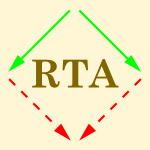 RTA-2005-KesnerL
RTA-2005-KesnerL - Extending the Explicit Substitution Paradigm (DK, SL), pp. 407–422.
 CHI-2005-GnanayuthamBC #interface #personalisation
CHI-2005-GnanayuthamBC #interface #personalisation- Discrete acceleration and personalised tiling as brain?body interface paradigms for neurorehabilitation (PG, CB, GC), pp. 261–270.
 ICEIS-v1-2005-AnyanwuAK #effectiveness #metadata
ICEIS-v1-2005-AnyanwuAK #effectiveness #metadata- Metadata Paradigm for Effective Global Information Technology in the MNCS (LOA, GAA, JK), pp. 209–218.
 CIKM-2005-Polyzotis #clustering #effectiveness #optimisation #query
CIKM-2005-Polyzotis #clustering #effectiveness #optimisation #query- Selectivity-based partitioning: a divide-and-union paradigm for effective query optimization (NP), pp. 720–727.
 SIGIR-2005-MaL #automation #classification #documentation #semantics
SIGIR-2005-MaL #automation #classification #documentation #semantics- A phonotactic-semantic paradigm for automatic spoken document classification (BM, HL), pp. 369–376.
 PADL-2005-BenzakenCM #query #xml
PADL-2005-BenzakenCM #query #xml- A Full Pattern-Based Paradigm for XML Query Processing (VB, GC, CM), pp. 235–252.
 SAC-2005-BryP #web
SAC-2005-BryP #web- Reactivity on the web: paradigms and applications of the language XChange (FB, PLP), pp. 1645–1649.
 SAC-2005-Rosso #analysis #framework #message passing #performance #scalability
SAC-2005-Rosso #analysis #framework #message passing #performance #scalability- Performance analysis framework for large software-intensive systems with a message passing paradigm (CDR), pp. 885–889.
 DAC-2005-CoburnRR #estimation
DAC-2005-CoburnRR #estimation- Power emulation: a new paradigm for power estimation (JC, SR, AR), pp. 700–705.
 ECDL-2004-Holmstrom #policy #privacy #standard
ECDL-2004-Holmstrom #policy #privacy #standard- Managing a Paradigm Shift — Aligning Management, Privacy Policy, Technology and Standards (JH), pp. 442–451.
 ITiCSE-2004-ConradF #object-oriented #source code #using
ITiCSE-2004-ConradF #object-oriented #source code #using- Using the synergies between the object-oriented paradigm and mathematics in joint mathematics/computer science programs (MC, TF), p. 254.
 DAC-2004-BaneresCK #recursion
DAC-2004-BaneresCK #recursion- A recursive paradigm to solve Boolean relations (DB, JC, MK), pp. 416–421.
 DAC-2004-DebJO #design #modelling #transaction
DAC-2004-DebJO #design #modelling #transaction- System design for DSP applications in transaction level modeling paradigm (AKD, AJ, JÖ), pp. 466–471.
 DAC-2004-JacomeHVB #design #fault #probability
DAC-2004-JacomeHVB #design #fault #probability- Defect tolerant probabilistic design paradigm for nanotechnologies (MFJ, CH, GdV, SB), pp. 596–601.
 DAC-2004-Shanbhag #design #reliability
DAC-2004-Shanbhag #design #reliability- A communication-theoretic design paradigm for reliable SOCs (NRS), p. 76.
 PDP-2004-AlmeidaGM #approach #programming
PDP-2004-AlmeidaGM #approach #programming- The Master-Slave Paradigm on Heterogeneous Systems: A Dynamic Programming Approach for the Optimal Mapping (FA, DG, LMM), p. 266–?.
 FME-2003-Kishida #development #roadmap
FME-2003-Kishida #development #roadmap- Looking Back to the Future: Thoughts on Paradigm Shift in Software Development (KK), pp. 1–6.
 ICSE-2003-BurnettCPRSW #re-engineering #spreadsheet
ICSE-2003-BurnettCPRSW #re-engineering #spreadsheet- End-User Software Engineering with Assertions in the Spreadsheet Paradigm (MMB, CRC, OP, GR, JS, CSW), pp. 93–105.
 ICALP-2002-BauerES #functional
ICALP-2002-BauerES #functional- Comparing Functional Paradigms for Exact Real-Number Computation (AB, MHE, AKS), pp. 488–500.
 ICALP-2002-FabrikantKP #internet #trade-off
ICALP-2002-FabrikantKP #internet #trade-off- Heuristically Optimized Trade-Offs: A New Paradigm for Power Laws in the Internet (AF, EK, CHP), pp. 110–122.
 EDOC-2002-GanesarajahL #composition #programming #question #workflow
EDOC-2002-GanesarajahL #composition #programming #question #workflow- Workflow-Based Composition of Web-Services: A Business Model or a Programming Paradigm? (DG, EL), pp. 273–284.
 LSO-2002-Ruhe #learning #re-engineering
LSO-2002-Ruhe #learning #re-engineering- Software Engineering Decision Support ? A New Paradigm for Learning Software Organizations (GR), pp. 104–113.
 SEKE-2002-AugustoG #logic #modelling
SEKE-2002-AugustoG #logic #modelling- A temporal logic view of paradigm models (JCA, RG), pp. 497–503.
 SEKE-2002-Pedrycz #re-engineering
SEKE-2002-Pedrycz #re-engineering- Computational intelligence as an emerging paradigm of software engineering (WP), pp. 7–14.
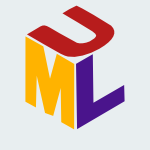 UML-2002-AndrePR #uml
UML-2002-AndrePR #uml- Integrating the Synchronous Paradigm into UML: Application to Control-Dominated Systems (CA, MAPF, JPR), pp. 163–178.
 AdaEurope-2002-Rosen #ada #interface
AdaEurope-2002-Rosen #ada #interface- Ada, Interfaces and the Listener Paradigm (JPR), pp. 344–356.
 ASE-2002-EgyedG #automation #requirements #traceability
ASE-2002-EgyedG #automation #requirements #traceability- Automating Requirements Traceability: Beyond the Record & Replay Paradigm (AE, PG), pp. 163–171.
 DAC-2002-SteyaertV #named #power management #question
DAC-2002-SteyaertV #named #power management #question- CMOS: a paradigm for low power wireless? (MS, PJV), pp. 836–841.
 DATE-2002-GhanmiGHMSS #reuse
DATE-2002-GhanmiGHMSS #reuse- E-Design Based on the Reuse Paradigm (LG, AG, MH, BM, KS, GS), pp. 214–220.
 DATE-2002-MicheliB #design #network
DATE-2002-MicheliB #design #network- Networks on Chip: A New Paradigm for Systems on Chip Design (GDM, LB), pp. 418–419.
 CADE-2002-Andreoli #middleware
CADE-2002-Andreoli #middleware- Focussing Proof-Net Construction as a Middleware Paradigm (JMA), pp. 501–516.
 ICDAR-2001-WantabeO #generative #parallel #recognition #verification
ICDAR-2001-WantabeO #generative #parallel #recognition #verification- Parallel Recognition of Roads from Urban Maps on Generation/Verification Paradigm of Hypotheses (TW, TO), pp. 1225–1234.
 ICDAR-2001-YoonLKC #recognition #segmentation #string
ICDAR-2001-YoonLKC #recognition #segmentation #string- New Paradigm for Segmentation and Recognition of Handwritten Numeral String (SY, YL, GK, YC), pp. 205–209.
 IFL-2001-ButterfieldS #comparison #correctness #proving #source code
IFL-2001-ButterfieldS #comparison #correctness #proving #source code- Proving Correctness of Programs with IO — A Paradigm Comparison (AB, GS), pp. 72–87.
 UML-2001-DevosS #analysis #object-oriented
UML-2001-DevosS #analysis #object-oriented- The Message Paradigm in Object-Oriented Analysis (FD, ES), pp. 182–193.
 GCSE-2001-Vranic #aspectj #design #multi
GCSE-2001-Vranic #aspectj #design #multi- AspectJ Paradigm Model: A Basis for Multi-paradigm Design for AspectJ (VV), pp. 48–57.
 SAC-2001-Chainbi01a #using
SAC-2001-Chainbi01a #using- Using the object paradigm to deal with the agent paradigm: capabilities and limits (WC), pp. 585–589.
 SAC-2001-ViroliMO #coordination #framework #on the #ontology
SAC-2001-ViroliMO #coordination #framework #on the #ontology- On observation as a coordination paradigm: an ontology and a formal framework (MV, GM, AO), pp. 166–175.
 HT-2000-PimentelAI #authoring #hypermedia
HT-2000-PimentelAI #authoring #hypermedia- Linking by interacting: a paradigm for authoring hypertext (MdGCP, GDA, YI), pp. 39–48.
 ICPR-v2-2000-PerantonisPV #analysis #classification #component #using
ICPR-v2-2000-PerantonisPV #analysis #classification #component #using- Supervised Principal Component Analysis Using a Smooth Classifier Paradigm (SJP, SP, VV), pp. 2109–2112.
 SIGIR-2000-AuCSGR #visualisation
SIGIR-2000-AuCSGR #visualisation- New paradigms in information visualization (PA, MC, SS, YG, SMR), pp. 307–309.
 TOOLS-USA-2000-FeldmannMRGR #approach #quality #repository #reuse
TOOLS-USA-2000-FeldmannMRGR #approach #quality #repository #reuse- An ORDBMS-Based Reuse Repository Supporting the Quality Improvement Paradigm — Exemplified by the SDL-Pattern Approach (RLF, WM, NR, BG, FR), pp. 125–136.
 GCSE-2000-Becker #component
GCSE-2000-Becker #component- Generic Components: A Symbiosis of Paradigms (MB), pp. 100–113.
 ICSE-2000-RothermelCBSGR #empirical #evaluation #spreadsheet #testing
ICSE-2000-RothermelCBSGR #empirical #evaluation #spreadsheet #testing- WYSIWYT testing in the spreadsheet paradigm: an empirical evaluation (KJR, CRC, MMB, JS, TRGG, GR), pp. 230–239.
 ICSE-2000-Silveira
ICSE-2000-Silveira - Spontaneous software: a Web-based, object computing paradigm (GEdS), pp. 719–721.
 SAC-2000-Lemahieu #navigation #web
SAC-2000-Lemahieu #navigation #web- A Context-Based Navigation Paradigm for Accessing Web Data (WL), pp. 948–955.
 DATE-2000-KallaZCH #framework #recursion #satisfiability #using
DATE-2000-KallaZCH #framework #recursion #satisfiability #using- A BDD-Based Satisfiability Infrastructure Using the Unate Recursive Paradigm (PK, ZZ, MJC, CH), pp. 232–236.
 PASTE-1999-Balmas #query #source code
PASTE-1999-Balmas #query #source code- Query by Outlines: A New Paradigm to Help Manage Programs (FB), pp. 86–94.
 DLT-1999-Yokomori #self #towards
DLT-1999-Yokomori #self #towards- Computation = self-assembly + conformational change: toward new computing paradigms (TY), pp. 32–43.
 ICALP-1999-RozenbergS
ICALP-1999-RozenbergS - DNA Computing: New Ideas and Paradigms (GR, AS), pp. 106–118.
 FM-v2-1999-BoerHR #approach #concurrent #semantics
FM-v2-1999-BoerHR #approach #concurrent #semantics- Formal Justification of the Rely-Guarantee Paradigm for Shared-Variable Concurrency: A Semantic Approach (FSdB, UH, WPdR), pp. 1245–1265.
 RTA-1999-Lopez-FraguasH #declarative #multi #named
RTA-1999-Lopez-FraguasH #declarative #multi #named- TOY: A Multiparadigm Declarative System (FJLF, JSH), pp. 244–247.
 TLCA-1999-Levy #call-by #named
TLCA-1999-Levy #call-by #named- Call-by-Push-Value: A Subsuming Paradigm (PBL), pp. 228–242.
 ICEIS-1999-Stamper #analysis #design
ICEIS-1999-Stamper #analysis #design- Information-Field Paradigm and New Directions for Systems Analysis and Design (RKS), p. VI.
 OOPSLA-1999-IsmailH #evaluation #mobile #performance
OOPSLA-1999-IsmailH #evaluation #mobile #performance- A Performance Evaluation of the Mobile Agent Paradigm (LI, DH), pp. 306–313.
 TOOLS-ASIA-1999-BajgoricADU #automation #development #using
TOOLS-ASIA-1999-BajgoricADU #automation #development #using- Using Paradigm Plus CASE Tool in a Fusion-Based Application Development Project (NB, IKA, MD, AÜ), pp. 424–427.
 TOOLS-EUROPE-1999-Coplien99a #c++ #design #implementation #multi
TOOLS-EUROPE-1999-Coplien99a #c++ #design #implementation #multi- Multiparadigm Design and Implementation in C++ (JC), p. 408.
 PPoPP-1999-McCurdyM #architecture #distributed #evaluation #memory management #simulation
PPoPP-1999-McCurdyM #architecture #distributed #evaluation #memory management #simulation- An Evaluation of Computing Paradigms for N-Body Simulations on Distributed Memory Architectures (CM, JMMC), pp. 25–36.
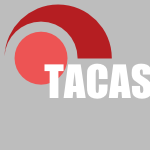 TACAS-1999-Knoop #approach #multi
TACAS-1999-Knoop #approach #multi- From DFA-Frameworks to DFA-Generators: A Unifying Multiparadigm Approach (JK), pp. 360–374.
 ECDL-1998-Herrington #library #towards
ECDL-1998-Herrington #library #towards- Toward a New Paradigm for Library Instruction in the Digital Library (VJH), pp. 661–662.
 VLDB-1998-KornLKF #data mining #mining #performance
VLDB-1998-KornLKF #data mining #mining #performance- Ratio Rules: A New Paradigm for Fast, Quantifiable Data Mining (FK, AL, YK, CF), pp. 582–593.
 CSEET-1998-West #lessons learnt
CSEET-1998-West #lessons learnt- Paradigm Lost: Lessons from the Object (non-)Revolution (DMW), pp. 76–87.
 ITiCSE-1998-Carswell #internet #question #towards
ITiCSE-1998-Carswell #internet #question #towards- The “Virtual University”: toward an Internet paradigm? (LC), pp. 46–50.
 ITiCSE-1998-Hadjerrouit #education #framework #java
ITiCSE-1998-Hadjerrouit #education #framework #java- A constructivist framework for integrating the Java paradigm into the undergraduate curriculum (SH), pp. 105–107.
 WCRE-1998-PenteadoMP #legacy #object-oriented #re-engineering #using
WCRE-1998-PenteadoMP #legacy #object-oriented #re-engineering #using- Reengineering of Legacy Systems Based on Transformation Using the Object-Oriented Paradigm (RP, PCM, AFdP), pp. 144–153.
 ECOOP-1998-CordsenS #case study #experience #memory management #using
ECOOP-1998-CordsenS #case study #experience #memory management #using- Experiences Developing a Virtual Shared Memory System Using High-Level Object Paradigms (JC, JN, WSP), pp. 285–306.
 TOOLS-ASIA-1998-NgHS #multi
TOOLS-ASIA-1998-NgHS #multi- A Multiparadigm Language for Developing Agent-oriented Applications (KWN, LH, YS), p. 18–?.
 TOOLS-ASIA-1998-PeriorellisBS #dependence #enterprise #modelling #network #object-oriented #using
TOOLS-ASIA-1998-PeriorellisBS #dependence #enterprise #modelling #network #object-oriented #using- Modeling Enterprise Dependency Networks Using an Object Oriented Paradigm (PP, AB, PS), p. 148–?.
 ASE-1998-HaebererM #architecture #concept #development #idea
ASE-1998-HaebererM #architecture #concept #development #idea- The Very Idea of Software Development Environments: A Conceptual Architecture for the ARTS Environment Paradigm (AMH, TSEM), pp. 260–271.
 ICSE-1998-BaldiP #design #mobile #network #trade-off
ICSE-1998-BaldiP #design #mobile #network #trade-off- Evaluating the Tradeoffs of Mobile Code Design Paradigms in Network Management Applications (MB, GPP), pp. 146–155.
 SAC-1998-Chatterjee #education #towards
SAC-1998-Chatterjee #education #towards- Towards a MASC appliances-based educational paradigm (SC), pp. 112–116.
 SAC-1998-DiazRT #coordination #integration #multi #tuple
SAC-1998-DiazRT #coordination #integration #multi #tuple- Multilingual and multiparadigm integration of a tuple channel-based coordination model (MD, BR, JMT), pp. 194–196.
 SAC-1998-Murthy #mobile #transaction #workflow
SAC-1998-Murthy #mobile #transaction #workflow- Transactional workflow paradigm: its application to mobile computing (VKM), pp. 424–432.
 DATE-1998-Coudert #encoding
DATE-1998-Coudert #encoding- A New Paradigm for Dichotomy-based Constrained Encoding (OC), pp. 830–834.
 PDP-1998-LamLCL
PDP-1998-LamLCL - The contractors-an alternative paradigm for worldwide virtual computing (WKL, SLL, WkC, CKL), pp. 230–236.
 PDP-1998-QuintanaEV
PDP-1998-QuintanaEV - A case for merging the ILP and DLP paradigms (FQ, RE, MV), pp. 217–224.
 ICFP-1997-ClaessenVM #visual notation
ICFP-1997-ClaessenVM #visual notation- Structuring Graphical Paradigms in TkGofer (KC, TV, EM), pp. 251–262.
 CHI-1997-KurtenbachFBB #design #user interface
CHI-1997-KurtenbachFBB #design #user interface- The Design of a GUI Paradigm based on Tablets, Two-hands, and Transparency (GK, GWF, TB, WB), pp. 35–42.
 CHI-1997-PinhanezMB #design #interactive
CHI-1997-PinhanezMB #design #interactive- Interval Scripts: a Design Paradigm for Story-Based Interactive Systems (CSP, KM, AFB), pp. 287–294.
 TOOLS-ASIA-1997-Jin #composition #inheritance #object-oriented #semantics
TOOLS-ASIA-1997-Jin #composition #inheritance #object-oriented #semantics- An Order-Based Composition Semantics for the Inheritance in Logic-Based Object-Oriented Paradigm (ZJ), pp. 110–120.
 ASE-1997-ArmandoSG #automation #recursion #source code #synthesis
ASE-1997-ArmandoSG #automation #recursion #source code #synthesis- Automatic Synthesis of Recursive Programs: The Proof-Planning Paradigm (AA, AS, IG), pp. 2–9.
 ICSE-1997-CarzanigaPV #design #distributed #mobile
ICSE-1997-CarzanigaPV #design #distributed #mobile- Designing Distributed Applications with Mobile Code Paradigms (AC, GPP, GV), pp. 22–32.
 DAC-1997-LavanaKBK #collaboration #design #execution #internet #workflow
DAC-1997-LavanaKBK #collaboration #design #execution #internet #workflow- Executable Workflows: A Paradigm for Collaborative Design on the Internet (HL, AK, FB, KK), pp. 553–558.
 HPDC-1997-WonS #distributed #retrieval #video
HPDC-1997-WonS #distributed #retrieval #video- Distributed Service Paradigm for Remote Video Retrieval Request (YW, JS), pp. 191–200.
 HT-1996-NurnbergLSS #hypermedia #operating system
HT-1996-NurnbergLSS #hypermedia #operating system- Hypermedia Operating Systems: A New Paradigm for Computing (PJN, JJL, ERS, JLS), pp. 194–202.
 PODS-1996-GyssensLS #query
PODS-1996-GyssensLS #query- Tables as a Paradigm for Querying and Restructuring (MG, LVSL, INS), pp. 93–103.
 ITiCSE-1996-MartiPH #education #network
ITiCSE-1996-MartiPH #education #network- PACKET tracing: a new paradigm for teaching computer network courses (WFM, UWP, JAHJ), pp. 162–164.
 ICPR-1996-OlkJ #image
ICPR-1996-OlkJ #image- Bucket processing: a paradigm for image processing (JGEO, PPJ), pp. 386–390.
 SEKE-1996-CorellaK #authoring #named #spreadsheet
SEKE-1996-CorellaK #authoring #named #spreadsheet- Expertsheets: A Spreadsheet Paradigm for Authoring Expert Systems (FC, MK), pp. 25–31.
 SAC-1996-Toh
SAC-1996-Toh - A handover paradigm for wireless ATM LANs (CKT), pp. 327–336.
 CC-1996-BoucherF #compilation #implementation #static analysis
CC-1996-BoucherF #compilation #implementation #static analysis- Abstract Compilation: A New Implementation Paradigm for Static Analysis (DB, MF), pp. 192–207.
 CHI-1995-MoranCMK #interactive
CHI-1995-MoranCMK #interactive- Implicit Structures for Pen-Based Systems within a Freeform Interaction Paradigm (TPM, PC, WvM, GK), pp. 487–494.
 PLILP-1995-BurguesF #evaluation #framework #multi
PLILP-1995-BurguesF #evaluation #framework #multi- Evaluation of Expressions in a Multiparadigm Framework (XBI, XF), pp. 455–456.
 TRI-Ada-1995-BalfourG #ada #using
TRI-Ada-1995-BalfourG #ada #using- Patterns and paradigms for using Ada 95 (BB, MG), pp. 243–310.
 SAC-1995-KaedingF #multi
SAC-1995-KaedingF #multi- Processing unexact information in a medical used multiparadigm system (AKK, TF), pp. 590–592.
 SAC-1995-Serrano #analysis #compilation #control flow #functional
SAC-1995-Serrano #analysis #compilation #control flow #functional- Control flow analysis: a functional languages compilation paradigm (MS), pp. 118–122.
 PDP-1995-Blinowski #data flow #memory management #modelling
PDP-1995-Blinowski #data flow #memory management #modelling- A Shared Memory model based on the Dataflow paradigm (GJB), pp. 68–75.
 TRI-Ada-1994-Cherry #ada #formal method #re-engineering #visualisation
TRI-Ada-1994-Cherry #ada #formal method #re-engineering #visualisation- Software Engineering with Ada in a New Key: Formalizing and Visualizing the Object Paradigm (GWC), pp. 309–320.
 TRI-Ada-1994-KermarrecP #ada #distributed #named #programming
TRI-Ada-1994-KermarrecP #ada #distributed #named #programming- Ada-Linda: A Powerful Paradigm for Programming Distributed Ada Applications (YK, LP), pp. 438–445.
 ICSE-1994-Ben-ShaulK #distributed #modelling #process
ICSE-1994-Ben-ShaulK #distributed #modelling #process- A Paradigm for Decentralized Process Modeling and Its Realization in the Oz Environment (IBS, GEK), pp. 179–188.
 KBSE-1994-LoiaQ #logic programming #object-oriented
KBSE-1994-LoiaQ #logic programming #object-oriented- Integrating Object-Oriented Paradigms and Logic Programming: The OPLA Language (VL, MQ), pp. 158–164.
 ESOP-1994-GiegerichK #functional #programming
ESOP-1994-GiegerichK #functional #programming- Suffix Trees in the Functional Programming Paradigm (RG, SK), pp. 225–240.
 HCI-SHI-1993-ChenTW #automation #editing #graph #object-oriented
HCI-SHI-1993-ChenTW #automation #editing #graph #object-oriented- Automated Construction of Application-Specific Graph Editors in an Object-Oriented Paradigm (MC, PT, CYW), pp. 415–420.
 HCI-SHI-1993-KumeJS #design
HCI-SHI-1993-KumeJS #design- A New Paradigm for Diagnostic Expert System Based on Designer’s Knowledge (YK, HSJ, GS), pp. 867–872.
 CIKM-1993-Tari #concept #logic #modelling
CIKM-1993-Tari #concept #logic #modelling- ERC++: A Conceptual Data Model Based on Object and Logic Paradigms (ZT), pp. 625–634.
 SEKE-1993-ZhangC #community #distributed #information management
SEKE-1993-ZhangC #community #distributed #information management- Virtual Agents and Virtual Communities: An Agent-Oriented Software and Knowledge Engineering Paradigm for Distributed Cooperative Systems (WRZ, MYC), pp. 207–214.
 TOOLS-PACIFIC-1993-Grant #ada #object-oriented #re-engineering #using
TOOLS-PACIFIC-1993-Grant #ada #object-oriented #re-engineering #using- Software Engineering Using the Object-Oriented Paradigm: The Promise of Ada 9X (DDG), p. 329.
 TOOLS-PACIFIC-1993-LingD #comparison #concurrent #object-oriented #specification #using
TOOLS-PACIFIC-1993-LingD #comparison #concurrent #object-oriented #specification #using- A Comparison of Techniques for Specifying Concurrent Systems Using the Object-Oriented Paradigm (SL, BD), pp. 155–177.
 TOOLS-USA-1993-Sarris #concept #object-oriented
TOOLS-USA-1993-Sarris #concept #object-oriented- Role of Conceptual Schema in Object-Oriented Paradigm (AS), pp. 471–485.
 RE-1993-GreenspanF #requirements #using
RE-1993-GreenspanF #requirements #using- Requirements engineering using the SOS paradigm (SJG, MF), pp. 260–263.
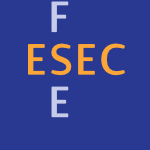 ESEC-1993-Basili #experience
ESEC-1993-Basili #experience- The Experience Factory and its Relationship to Other Improvement Paradigms (VRB), pp. 68–83.
 SAC-1993-Al-HaddadGG #implementation #object-oriented #programming #reuse #using
SAC-1993-Al-HaddadGG #implementation #object-oriented #programming #reuse #using- Dynamic Selection and Reuse of Implementations in the Object-Oriented Programming Paradigm (HMAH, KMG, TG), pp. 452–459.
 SAC-1993-HashemiCST #monte carlo #network #predict
SAC-1993-HashemiCST #monte carlo #network #predict- Prediction Capability of Neural Networks Trained by Monte-Carlo Paradigm (RRH, AHC, NLS, JRT), pp. 9–13.
 SAC-1993-Jeffay #performance #predict #realtime
SAC-1993-Jeffay #performance #predict #realtime- The Real-Time Producer/Consumer Paradigm: A Paradigm for the Construction of Efficient, Predictable Real-Time Systems (KJ), pp. 796–804.
 PPoPP-1993-AghaC #distributed #named #programming
PPoPP-1993-AghaC #distributed #named #programming- ActorSpaces: An Open Distributed Programming Paradigm (GA, CJC), pp. 23–32.
 ICLP-1993-CarroGH #execution #logic programming #parallel #source code #visualisation
ICLP-1993-CarroGH #execution #logic programming #parallel #source code #visualisation- Some Paradigms for Visualizing Parallel Execution of Logic Programs (MC, LMGH, MVH), pp. 184–200.
 ILPS-1993-KobayashiY #concurrent #linear #logic programming #named
ILPS-1993-KobayashiY #concurrent #linear #logic programming #named- ACL — A Concurrent Linear Logic Programming Paradigm (NK, AY), pp. 279–294.
 HT-ECHT-1992-LeluF #approach #hypermedia #information retrieval
HT-ECHT-1992-LeluF #approach #hypermedia #information retrieval- Hypertext Paradigm in the Field of Information Retrieval: A Neural Approach (AL, CF), pp. 112–121.
 SEI-1992-Lutz #formal method
SEI-1992-Lutz #formal method- Formal Methods and the Engineering Paradigm (MJL), pp. 121–130.
 SEI-1992-OmanJ #re-engineering
SEI-1992-OmanJ #re-engineering- The Influence of Software Engineering Paradigms on Individual and Team Project Results (PWO, WJ), pp. 417–436.
 CHI-1992-Hill #constraints #user interface #using
CHI-1992-Hill #constraints #user interface #using- The abstraction-link-view paradigm: using constraints to connect user interfaces to applications (RDH), pp. 335–342.
 KR-1992-SkinnerL #architecture #reasoning
KR-1992-SkinnerL #architecture #reasoning- An Architecture for Integrating Reasoning Paradigms (JMS, GFL), pp. 753–761.
 SEKE-1992-VranesS #framework #multi
SEKE-1992-VranesS #framework #multi- Multiparadigm Blackboard Framework (SV, MS), p. 101.
 ECOOP-1992-NormandC #design #implementation #user interface
ECOOP-1992-NormandC #design #implementation #user interface- Unifying the Design and Implementation of User Interfaces through the Object Paradigm (VN, JC), pp. 153–169.
 ECOOP-1992-Uustalu #approach #logic programming #object-oriented
ECOOP-1992-Uustalu #approach #logic programming #object-oriented- Combining Object-Oriented and Logic Paradigms: A Modal Logic Programming Approach (TU), pp. 98–113.
 TOOLS-EUROPE-1992-Assis-ArantesBLRRSC
TOOLS-EUROPE-1992-Assis-ArantesBLRRSC - Application of the Object Paradigm in Satellite Checkout and Payload Operations (PAA, EB, GL, TR, JR, RS, NC), pp. 311–323.
 TOOLS-EUROPE-1992-JonesB #development #information management #object-oriented
TOOLS-EUROPE-1992-JonesB #development #information management #object-oriented- The OO Paradigm for Contingency-Based Development of Information Systems (CMJ, BMB), pp. 185–197.
 AdaEurope-1992-BayassiBJL #ada #distributed #using
AdaEurope-1992-BayassiBJL #ada #distributed #using- A Practical Use of the Ada Rendez-Vous Paradigm in Distributed Systems (MB, HB, JFJ, PL), pp. 312–324.
 ALP-1992-Meseguer #logic programming #multi
ALP-1992-Meseguer #logic programming #multi- Multiparadigm Logic Programming (JM), pp. 158–200.
 HPDC-1992-Sunderam #network #tool support #tutorial
HPDC-1992-Sunderam #network #tool support #tutorial- Tutorial I: Paradigms and Tools for Heterogeneous Network Computing (VSS), p. 282.
 OOPSLA-1991-LewisHKS #empirical #object-oriented #reuse
OOPSLA-1991-LewisHKS #empirical #object-oriented #reuse- An Empirical Study of the Object-Oriented Paradigm and Software Reuse (JAL, SMH, DGK, RSS), pp. 184–196.
 ISLP-1991-JansonH #kernel #programming
ISLP-1991-JansonH #kernel #programming- Programming Paradigms of the Andorra Kernel Language (SJ, SH), pp. 167–183.
 SIGMOD-1990-CacaceCCTZ #modelling #object-oriented #programming #rule-based
SIGMOD-1990-CacaceCCTZ #modelling #object-oriented #programming #rule-based- Integrating Object-Oriented Data Modeling with a Rule-Based Programming Paradigm (FC, SC, SCR, LT, RZ), pp. 225–236.
 SIGMOD-1990-WolfsonO #distributed #parallel
SIGMOD-1990-WolfsonO #distributed #parallel- A New Paradigm for Parallel and Distributed Rule-Processing (OW, AO), pp. 133–142.
 CHI-1990-Thomsen
CHI-1990-Thomsen - Business instrument panel: a new paradigm for interfacing with financial data (CTT), pp. 161–166.
 CHI-1990-Took #interactive #interface
CHI-1990-Took #interactive #interface- Surface interaction: a paradigm and model for separating application and interface (RKT), pp. 35–42.
 CSCW-1990-MoranA #design
CSCW-1990-MoranA #design- The Workaday World as a Paradigm for CSCW Design (TPM, RJA), pp. 381–393.
 SEKE-1990-NurcanKL #database #programming
SEKE-1990-NurcanKL #database #programming- Integrating Database Technology and iogic Programming Paradigm (SN, JK, LL), pp. 147–152.
 CLP-1990-Saraswat90 #concurrent #constraints #programming
CLP-1990-Saraswat90 #concurrent #constraints #programming- The Paradigm of Concurrent Constraint Programming (VAS), pp. 777–778.
 CHI-1989-BaudelaireG #design #interactive
CHI-1989-BaudelaireG #design #interactive- Planar maps: an interaction paradigm for graphic design (PB, MG), pp. 313–318.
 CHI-1989-FischerN #named #retrieval
CHI-1989-FischerN #named #retrieval- Helgon: extending the retrieval by reformulation paradigm (GF, HNL), pp. 357–362.
 SEKE-1989-LiRPS #execution #hybrid #modelling #simulation
SEKE-1989-LiRPS #execution #hybrid #modelling #simulation- A Hybrid Modeling Paradigm for Simulating Existing Software and Its Execution Environment (XL, AR, RP, JS), pp. 61–66.
 OOPSLA-1989-HarrisonSS #development #experience #object-oriented #using
OOPSLA-1989-HarrisonSS #development #experience #object-oriented #using- Good News, Bad News: Experience Building a Software Development Environment Using the Object-Oriented Paradigm (WHH, JJS, PFS), pp. 85–94.
 OOPSLA-1989-ShillingS #object-oriented
OOPSLA-1989-ShillingS #object-oriented- Three Steps to Views: Extending the Object-Oriented Paradigm (JJS, PFS), pp. 353–361.
 ESEC-1989-Gottler #graph grammar #implementation #visual notation
ESEC-1989-Gottler #graph grammar #implementation #visual notation- Graph Grammars, a new Paradigm for Implementing Visual Languages (HG), pp. 336–350.
 ICSE-1989-RomanC #declarative #visualisation
ICSE-1989-RomanC #declarative #visualisation- Declarative Visualization in the Shared Dataspace Paradigm (GCR, KCC), pp. 34–43.
 SIGMOD-1988-AbbadiT #concurrent #protocol
SIGMOD-1988-AbbadiT #concurrent #protocol- The Group Paradigm for Concurrency Control Protocols (AEA, ST), pp. 126–134.
 PLILP-1988-YamashitaN #programming
PLILP-1988-YamashitaN #programming- Coupled Contex-Free Grammar As a Programming Paradigm (YY, IN), pp. 132–145.
 LICS-1988-Meyer #semantics
LICS-1988-Meyer #semantics- Semantical Paradigms: Notes for an Invited Lecture, with Two Appendices by Stavros S. Cosmadakis (ARM), pp. 236–253.
 FPCA-1987-Johnsson #attribute grammar #functional #programming
FPCA-1987-Johnsson #attribute grammar #functional #programming- Attribute grammars as a functional programming paradigm (TJ), pp. 154–173.
 HCI-CE-1987-Gonzalez-SustaetaM #database #natural language #query #semantics
HCI-CE-1987-Gonzalez-SustaetaM #database #natural language #query #semantics- A Semantic Paradigm to Solve Natural Language Database Queries (JGS, CM), pp. 113–120.
 HCI-CE-1987-Kitto #information management #problem #research #tool support
HCI-CE-1987-Kitto #information management #problem #research #tool support- Knowledge Acquisition Tools for Different Problem-Solving Paradigms Research at Boeing Computing Services (CMK), pp. 515–522.
 ECOOP-1987-Coutaz #user interface
ECOOP-1987-Coutaz #user interface- The Construction of User Interfaces and the Object Paradigm (JC), pp. 121–130.
 DAC-1987-McDermottS #network
DAC-1987-McDermottS #network- Switch Directed Dynamic Causal Networks — a Paradigm for Electronic System Diagnosis (RMM, DS), pp. 258–264.
 CFLP-1987-Bellia #functional #logic programming #named
CFLP-1987-Bellia #functional #logic programming #named- Retractions: A Functional Paradigm for Logic Programming (MB), pp. 260–275.
 OOPSLA-1986-Pascoe #named
OOPSLA-1986-Pascoe #named- Encapsulators: A New Software Paradigm in Smalltalk-80 (GAP), pp. 341–346.
 POPL-1986-HudakS #multi #programming
POPL-1986-HudakS #multi #programming- Para-Functional Programming: A Paradigm for Programming Multiprocessor Systems (PH, LS), pp. 243–254.
 DAC-1986-BrewerG #design
DAC-1986-BrewerG #design- An expert-system paradigm for design (FB, DG), pp. 62–68.
 ICSE-1984-Blum #information management
ICSE-1984-Blum #information management- Three Paradigms for Developing Information Systems (BIB), pp. 534–544.
 VLDB-1983-Morgenstern #database
VLDB-1983-Morgenstern #database- Active Databases as a Paradigm for Enhanced Computing Environments (MM), pp. 34–42.
 POPL-1983-Pratt #data flow #design #programming
POPL-1983-Pratt #data flow #design #programming- Five Paradigm Shifts in Language Design and their Realization in Viron, a Dataflow Programming Environment (VRP), pp. 1–9.
 ICSE-1976-Wegner #research
ICSE-1976-Wegner #research- Research Paradigms in Computer Science (PW), pp. 322–330.
 FSCD-2019-SantoPU
FSCD-2019-SantoPU  CIKM-2018-KhattabHS #in memory #manycore #named #polymorphism
CIKM-2018-KhattabHS #in memory #manycore #named #polymorphism KDD-2018-YeZXZGD #mobile #parallel #performance #recommendation
KDD-2018-YeZXZGD #mobile #parallel #performance #recommendation KDD-2017-0013H #learning #predict
KDD-2017-0013H #learning #predict Onward-2016-KurajJ #distributed #programming
Onward-2016-KurajJ #distributed #programming PADL-2016-HertumDJD #interactive
PADL-2016-HertumDJD #interactive VLDB-2015-PottiP #approximate #named #query
VLDB-2015-PottiP #approximate #named #query EDM-2015-Gonzalez-Brenes #adaptation #empirical #evaluation #predict
EDM-2015-Gonzalez-Brenes #adaptation #empirical #evaluation #predict AIIDE-2015-LiapisY #design #sketching
AIIDE-2015-LiapisY #design #sketching FDG-2015-KoenitzL #authoring #interactive
FDG-2015-KoenitzL #authoring #interactive DUXU-UI-2015-BrahnamW #design #towards
DUXU-UI-2015-BrahnamW #design #towards ICEIS-v3-2015-MejriG #case study #comparative #evaluation #flexibility
ICEIS-v3-2015-MejriG #case study #comparative #evaluation #flexibility CIKM-2015-BhowmickDCA #feedback #query #semistructured data #visual notation
CIKM-2015-BhowmickDCA #feedback #query #semistructured data #visual notation SEKE-2015-CheP #architecture #design #development #evaluation
SEKE-2015-CheP #architecture #design #development #evaluation SPLC-2015-BeekFG #adaptation #analysis #product line
SPLC-2015-BeekFG #adaptation #analysis #product line ICSE-v2-2015-LyonsO #coordination #named
ICSE-v2-2015-LyonsO #coordination #named DAC-2015-ChenMRC #execution #performance
DAC-2015-ChenMRC #execution #performance DAC-2015-RoyLUP #multi #named #optimisation #performance
DAC-2015-RoyLUP #multi #named #optimisation #performance DATE-2015-HanyuSOMNM #architecture #in memory #power management #reliability #towards
DATE-2015-HanyuSOMNM #architecture #in memory #power management #reliability #towards DATE-2015-SarmaDGVN #self
DATE-2015-SarmaDGVN #self CHI-PLAY-2014-CarterDNHG #game studies #human-computer #overview #research
CHI-PLAY-2014-CarterDNHG #game studies #human-computer #overview #research DUXU-DI-2014-CamposNNC #interface #usability
DUXU-DI-2014-CamposNNC #interface #usability DUXU-TMT-2014-Lamontagne #performance #smarttech
DUXU-TMT-2014-Lamontagne #performance #smarttech DUXU-TMT-2014-SchneidermeierHW #comparative #evaluation #experience #usability
DUXU-TMT-2014-SchneidermeierHW #comparative #evaluation #experience #usability HCI-TMT-2014-Merlin #implementation #interactive #tool support
HCI-TMT-2014-Merlin #implementation #interactive #tool support LCT-NLE-2014-UzunosmanogluC #collaboration #learning #online
LCT-NLE-2014-UzunosmanogluC #collaboration #learning #online VISSOFT-2014-MartinezZMBKT #constraints #graph #product line #visualisation
VISSOFT-2014-MartinezZMBKT #constraints #graph #product line #visualisation KDIR-2014-DistanteCVL #learning #online #plugin #topic
KDIR-2014-DistanteCVL #learning #online #plugin #topic KEOD-2014-FreibergHP #knowledge-based #novel
KEOD-2014-FreibergHP #knowledge-based #novel DAC-2014-SwaminathanLLKSN #architecture
DAC-2014-SwaminathanLLKSN #architecture ITiCSE-2013-Joel13a #education
ITiCSE-2013-Joel13a #education DUXU-NTE-2013-MartinsMS #design #multi
DUXU-NTE-2013-MartinsMS #design #multi KDD-2013-CaoTCJ #named #online #social
KDD-2013-CaoTCJ #named #online #social SEKE-2013-CheP #architecture #design #development
SEKE-2013-CheP #architecture #design #development SEKE-2013-KatoSWF #comparative #evaluation #programming
SEKE-2013-KatoSWF #comparative #evaluation #programming ECOOP-2013-VakilianCMNJ #automation #composition #refactoring
ECOOP-2013-VakilianCMNJ #automation #composition #refactoring Onward-2013-MilicevicJGM #interactive #modelling #programming #web
Onward-2013-MilicevicJGM #interactive #modelling #programming #web RE-2013-MahauxM #requirements #research
RE-2013-MahauxM #requirements #research SAC-2013-BruyninckxKHKGB #component #development #modelling
SAC-2013-BruyninckxKHKGB #component #development #modelling DATE-2013-GaoBW #performance
DATE-2013-GaoBW #performance DATE-2013-VenkataramaniRR #approximate #configuration management #design #named #quality
DATE-2013-VenkataramaniRR #approximate #configuration management #design #named #quality CADE-2013-ErbaturEKLLMMNSS #analysis #encryption #protocol #symmetry #unification
CADE-2013-ErbaturEKLLMMNSS #analysis #encryption #protocol #symmetry #unification ICLP-J-2013-GottlobMP #decidability
ICLP-J-2013-GottlobMP #decidability ICEIS-J-2012-BanosBM #challenge
ICEIS-J-2012-BanosBM #challenge ICEIS-v3-2012-CaronV #design #enterprise #information management #process
ICEIS-v3-2012-CaronV #design #enterprise #information management #process ICPR-2012-HouHZQ #named #retrieval
ICPR-2012-HouHZQ #named #retrieval ICPR-2012-MartelliCBTM #detection #similarity
ICPR-2012-MartelliCBTM #detection #similarity MLDM-2012-CeciAVMPG #classification #relational
MLDM-2012-CeciAVMPG #classification #relational SIGIR-2012-Broder #information retrieval
SIGIR-2012-Broder #information retrieval ICSE-2012-DeLineBRJR #debugging #experience #industrial
ICSE-2012-DeLineBRJR #debugging #experience #industrial SAC-2012-GocicS #process
SAC-2012-GocicS #process CC-2012-MarronLB #analysis #programming
CC-2012-MarronLB #analysis #programming TPDL-2011-Sofronijevic #collaboration #library
TPDL-2011-Sofronijevic #collaboration #library VLDB-2011-NandiJ #interactive
VLDB-2011-NandiJ #interactive DiGRA-2011-Therrien #design #game studies #video
DiGRA-2011-Therrien #design #game studies #video CHI-2011-BlanchO #benchmark #metric
CHI-2011-BlanchO #benchmark #metric ICEIS-v4-2011-XinQ #information management
ICEIS-v4-2011-XinQ #information management CIKM-2011-RajputPGA
CIKM-2011-RajputPGA  Onward-2011-CorralSSGR #development #evolution #mobile #multi #platform
Onward-2011-CorralSSGR #development #evolution #mobile #multi #platform AdaEurope-2011-Rodriguez-LopezG #abstraction #architecture #middleware
AdaEurope-2011-Rodriguez-LopezG #abstraction #architecture #middleware ASE-2011-TellB #development #process
ASE-2011-TellB #development #process ECSA-2010-MarcoGII #adaptation #learning #lifecycle #self
ECSA-2010-MarcoGII #adaptation #learning #lifecycle #self ITiCSE-2010-RagonisH #design #programming
ITiCSE-2010-RagonisH #design #programming IFL-2010-MichelsPA #user interface
IFL-2010-MichelsPA #user interface ICEIS-AIDSS-2010-KhriyenkoNT #named
ICEIS-AIDSS-2010-KhriyenkoNT #named ICEIS-J-2010-SandeSMFH10a #agile
ICEIS-J-2010-SandeSMFH10a #agile ICEIS-J-2010-SilvaGFTG10a #monitoring
ICEIS-J-2010-SilvaGFTG10a #monitoring ICPR-2010-ChenYKA #assessment #automation #reliability #video
ICPR-2010-ChenYKA #assessment #automation #reliability #video SIGIR-2010-AggarwalZ #modelling #representation #visual notation
SIGIR-2010-AggarwalZ #modelling #representation #visual notation SIGIR-2010-Harman #question
SIGIR-2010-Harman #question OOPSLA-2010-TianJZS #optimisation
OOPSLA-2010-TianJZS #optimisation ICSE-2010-BragdonRZKCKCAL #development #ide #user interface
ICSE-2010-BragdonRZKCKCAL #development #ide #user interface ICSE-2010-EsfahaniM #adaptation #network #pervasive #self #social
ICSE-2010-EsfahaniM #adaptation #network #pervasive #self #social HPDC-2010-GunarathneWQF #in the cloud #parallel
HPDC-2010-GunarathneWQF #in the cloud #parallel ICLP-2010-Fages10 #biology #logic
ICLP-2010-Fages10 #biology #logic SEFM-2009-BersaniFPR #modelling #multi #realtime #verification
SEFM-2009-BersaniFPR #modelling #multi #realtime #verification DiGRA-2009-StenrosS #game studies
DiGRA-2009-StenrosS #game studies CHI-2009-HsiaoCHCHH #comparison #multi
CHI-2009-HsiaoCHCHH #comparison #multi CHI-2009-YliriskuHNJ #design
CHI-2009-YliriskuHNJ #design HCI-AUII-2009-BekiarisKMP #concept #smarttech
HCI-AUII-2009-BekiarisKMP #concept #smarttech HCI-AUII-2009-WelchLLWSW #artificial reality #interactive #social
HCI-AUII-2009-WelchLLWSW #artificial reality #interactive #social HCI-NIMT-2009-JacksonMBHVSI #interface
HCI-NIMT-2009-JacksonMBHVSI #interface ICEIS-DISI-2009-ElarissKG #multi #optimisation #query
ICEIS-DISI-2009-ElarissKG #multi #optimisation #query KDIR-2009-Exman #composition #named
KDIR-2009-Exman #composition #named KEOD-2009-RocheCDR #named
KEOD-2009-RocheCDR #named PPDP-2009-DvorakGPW #programming
PPDP-2009-DvorakGPW #programming ASE-2009-Majumdar #aspect-oriented #migration #programming
ASE-2009-Majumdar #aspect-oriented #migration #programming CHI-2008-HuangT #design #interactive #mobile
CHI-2008-HuangT #design #interactive #mobile CSCW-2008-EgelmanBI #product line
CSCW-2008-EgelmanBI #product line SOFTVIS-2008-CarneiroMM #comprehension #process #visualisation
SOFTVIS-2008-CarneiroMM #comprehension #process #visualisation CAiSE-2008-MullerRH #adaptation #data-driven #process
CAiSE-2008-MullerRH #adaptation #data-driven #process TOOLS-EUROPE-2008-KuhlemannARL #composition #design pattern #multi
TOOLS-EUROPE-2008-KuhlemannARL #composition #design pattern #multi SAC-2008-SeifertWK #algorithm #detection #divide and conquer #interactive
SAC-2008-SeifertWK #algorithm #detection #divide and conquer #interactive CASE-2008-ReveliotisR #multi #resource management
CASE-2008-ReveliotisR #multi #resource management DAC-2008-FraerKM #synthesis
DAC-2008-FraerKM #synthesis DATE-2008-VermaBI #design #latency
DATE-2008-VermaBI #design #latency TestCom-FATES-2008-ShuCLLSL #framework #named #network #security #testing
TestCom-FATES-2008-ShuCLLSL #framework #named #network #security #testing DocEng-2007-BlouinB #documentation
DocEng-2007-BlouinB #documentation ITiCSE-2007-VilnerZG #case study #concept #object-oriented
ITiCSE-2007-VilnerZG #case study #concept #object-oriented HIMI-MTT-2007-GeislerERPSG #interactive #scalability
HIMI-MTT-2007-GeislerERPSG #interactive #scalability SIGIR-2007-JansenSB #learning #online
SIGIR-2007-JansenSB #learning #online CASE-2007-Ho #optimisation #towards
CASE-2007-Ho #optimisation #towards CASE-2007-SunFSFCD #analysis #overview
CASE-2007-SunFSFCD #analysis #overview DATE-2007-SheldonVL #design #interactive #using
DATE-2007-SheldonVL #design #interactive #using SOSP-2007-AguileraMSVK #distributed #named #scalability
SOSP-2007-AguileraMSVK #distributed #named #scalability SIGMOD-2006-Gutmans #named #php #web
SIGMOD-2006-Gutmans #named #php #web VLDB-2006-WangRGB #multi #named #optimisation #query
VLDB-2006-WangRGB #multi #named #optimisation #query WCRE-2006-Briand #challenge #reverse engineering
WCRE-2006-Briand #challenge #reverse engineering EDOC-2006-Ejiri #generative #network
EDOC-2006-Ejiri #generative #network ICEIS-AIDSS-2006-PintoGS #data mining #database #mining
ICEIS-AIDSS-2006-PintoGS #data mining #database #mining ICSE-2006-Ruthruff #program analysis
ICSE-2006-Ruthruff #program analysis ISSTA-2006-RuthruffER #program analysis
ISSTA-2006-RuthruffER #program analysis HT-2005-RivaZ #hypermedia
HT-2005-RivaZ #hypermedia RTA-2005-KesnerL
RTA-2005-KesnerL  CHI-2005-GnanayuthamBC #interface #personalisation
CHI-2005-GnanayuthamBC #interface #personalisation ICEIS-v1-2005-AnyanwuAK #effectiveness #metadata
ICEIS-v1-2005-AnyanwuAK #effectiveness #metadata CIKM-2005-Polyzotis #clustering #effectiveness #optimisation #query
CIKM-2005-Polyzotis #clustering #effectiveness #optimisation #query SIGIR-2005-MaL #automation #classification #documentation #semantics
SIGIR-2005-MaL #automation #classification #documentation #semantics PADL-2005-BenzakenCM #query #xml
PADL-2005-BenzakenCM #query #xml SAC-2005-BryP #web
SAC-2005-BryP #web SAC-2005-Rosso #analysis #framework #message passing #performance #scalability
SAC-2005-Rosso #analysis #framework #message passing #performance #scalability DAC-2005-CoburnRR #estimation
DAC-2005-CoburnRR #estimation ECDL-2004-Holmstrom #policy #privacy #standard
ECDL-2004-Holmstrom #policy #privacy #standard ITiCSE-2004-ConradF #object-oriented #source code #using
ITiCSE-2004-ConradF #object-oriented #source code #using DAC-2004-BaneresCK #recursion
DAC-2004-BaneresCK #recursion DAC-2004-DebJO #design #modelling #transaction
DAC-2004-DebJO #design #modelling #transaction DAC-2004-JacomeHVB #design #fault #probability
DAC-2004-JacomeHVB #design #fault #probability DAC-2004-Shanbhag #design #reliability
DAC-2004-Shanbhag #design #reliability PDP-2004-AlmeidaGM #approach #programming
PDP-2004-AlmeidaGM #approach #programming FME-2003-Kishida #development #roadmap
FME-2003-Kishida #development #roadmap ICSE-2003-BurnettCPRSW #re-engineering #spreadsheet
ICSE-2003-BurnettCPRSW #re-engineering #spreadsheet ICALP-2002-BauerES #functional
ICALP-2002-BauerES #functional ICALP-2002-FabrikantKP #internet #trade-off
ICALP-2002-FabrikantKP #internet #trade-off EDOC-2002-GanesarajahL #composition #programming #question #workflow
EDOC-2002-GanesarajahL #composition #programming #question #workflow LSO-2002-Ruhe #learning #re-engineering
LSO-2002-Ruhe #learning #re-engineering SEKE-2002-AugustoG #logic #modelling
SEKE-2002-AugustoG #logic #modelling SEKE-2002-Pedrycz #re-engineering
SEKE-2002-Pedrycz #re-engineering UML-2002-AndrePR #uml
UML-2002-AndrePR #uml AdaEurope-2002-Rosen #ada #interface
AdaEurope-2002-Rosen #ada #interface ASE-2002-EgyedG #automation #requirements #traceability
ASE-2002-EgyedG #automation #requirements #traceability DAC-2002-SteyaertV #named #power management #question
DAC-2002-SteyaertV #named #power management #question DATE-2002-GhanmiGHMSS #reuse
DATE-2002-GhanmiGHMSS #reuse DATE-2002-MicheliB #design #network
DATE-2002-MicheliB #design #network CADE-2002-Andreoli #middleware
CADE-2002-Andreoli #middleware ICDAR-2001-WantabeO #generative #parallel #recognition #verification
ICDAR-2001-WantabeO #generative #parallel #recognition #verification ICDAR-2001-YoonLKC #recognition #segmentation #string
ICDAR-2001-YoonLKC #recognition #segmentation #string IFL-2001-ButterfieldS #comparison #correctness #proving #source code
IFL-2001-ButterfieldS #comparison #correctness #proving #source code UML-2001-DevosS #analysis #object-oriented
UML-2001-DevosS #analysis #object-oriented GCSE-2001-Vranic #aspectj #design #multi
GCSE-2001-Vranic #aspectj #design #multi SAC-2001-Chainbi01a #using
SAC-2001-Chainbi01a #using SAC-2001-ViroliMO #coordination #framework #on the #ontology
SAC-2001-ViroliMO #coordination #framework #on the #ontology HT-2000-PimentelAI #authoring #hypermedia
HT-2000-PimentelAI #authoring #hypermedia ICPR-v2-2000-PerantonisPV #analysis #classification #component #using
ICPR-v2-2000-PerantonisPV #analysis #classification #component #using SIGIR-2000-AuCSGR #visualisation
SIGIR-2000-AuCSGR #visualisation TOOLS-USA-2000-FeldmannMRGR #approach #quality #repository #reuse
TOOLS-USA-2000-FeldmannMRGR #approach #quality #repository #reuse GCSE-2000-Becker #component
GCSE-2000-Becker #component ICSE-2000-RothermelCBSGR #empirical #evaluation #spreadsheet #testing
ICSE-2000-RothermelCBSGR #empirical #evaluation #spreadsheet #testing ICSE-2000-Silveira
ICSE-2000-Silveira  SAC-2000-Lemahieu #navigation #web
SAC-2000-Lemahieu #navigation #web DATE-2000-KallaZCH #framework #recursion #satisfiability #using
DATE-2000-KallaZCH #framework #recursion #satisfiability #using PASTE-1999-Balmas #query #source code
PASTE-1999-Balmas #query #source code DLT-1999-Yokomori #self #towards
DLT-1999-Yokomori #self #towards ICALP-1999-RozenbergS
ICALP-1999-RozenbergS  FM-v2-1999-BoerHR #approach #concurrent #semantics
FM-v2-1999-BoerHR #approach #concurrent #semantics RTA-1999-Lopez-FraguasH #declarative #multi #named
RTA-1999-Lopez-FraguasH #declarative #multi #named TLCA-1999-Levy #call-by #named
TLCA-1999-Levy #call-by #named ICEIS-1999-Stamper #analysis #design
ICEIS-1999-Stamper #analysis #design OOPSLA-1999-IsmailH #evaluation #mobile #performance
OOPSLA-1999-IsmailH #evaluation #mobile #performance TOOLS-ASIA-1999-BajgoricADU #automation #development #using
TOOLS-ASIA-1999-BajgoricADU #automation #development #using TOOLS-EUROPE-1999-Coplien99a #c++ #design #implementation #multi
TOOLS-EUROPE-1999-Coplien99a #c++ #design #implementation #multi PPoPP-1999-McCurdyM #architecture #distributed #evaluation #memory management #simulation
PPoPP-1999-McCurdyM #architecture #distributed #evaluation #memory management #simulation TACAS-1999-Knoop #approach #multi
TACAS-1999-Knoop #approach #multi ECDL-1998-Herrington #library #towards
ECDL-1998-Herrington #library #towards VLDB-1998-KornLKF #data mining #mining #performance
VLDB-1998-KornLKF #data mining #mining #performance CSEET-1998-West #lessons learnt
CSEET-1998-West #lessons learnt ITiCSE-1998-Carswell #internet #question #towards
ITiCSE-1998-Carswell #internet #question #towards ITiCSE-1998-Hadjerrouit #education #framework #java
ITiCSE-1998-Hadjerrouit #education #framework #java WCRE-1998-PenteadoMP #legacy #object-oriented #re-engineering #using
WCRE-1998-PenteadoMP #legacy #object-oriented #re-engineering #using ECOOP-1998-CordsenS #case study #experience #memory management #using
ECOOP-1998-CordsenS #case study #experience #memory management #using TOOLS-ASIA-1998-NgHS #multi
TOOLS-ASIA-1998-NgHS #multi TOOLS-ASIA-1998-PeriorellisBS #dependence #enterprise #modelling #network #object-oriented #using
TOOLS-ASIA-1998-PeriorellisBS #dependence #enterprise #modelling #network #object-oriented #using ASE-1998-HaebererM #architecture #concept #development #idea
ASE-1998-HaebererM #architecture #concept #development #idea ICSE-1998-BaldiP #design #mobile #network #trade-off
ICSE-1998-BaldiP #design #mobile #network #trade-off SAC-1998-Chatterjee #education #towards
SAC-1998-Chatterjee #education #towards SAC-1998-DiazRT #coordination #integration #multi #tuple
SAC-1998-DiazRT #coordination #integration #multi #tuple SAC-1998-Murthy #mobile #transaction #workflow
SAC-1998-Murthy #mobile #transaction #workflow DATE-1998-Coudert #encoding
DATE-1998-Coudert #encoding PDP-1998-LamLCL
PDP-1998-LamLCL  PDP-1998-QuintanaEV
PDP-1998-QuintanaEV  ICFP-1997-ClaessenVM #visual notation
ICFP-1997-ClaessenVM #visual notation CHI-1997-KurtenbachFBB #design #user interface
CHI-1997-KurtenbachFBB #design #user interface CHI-1997-PinhanezMB #design #interactive
CHI-1997-PinhanezMB #design #interactive TOOLS-ASIA-1997-Jin #composition #inheritance #object-oriented #semantics
TOOLS-ASIA-1997-Jin #composition #inheritance #object-oriented #semantics ASE-1997-ArmandoSG #automation #recursion #source code #synthesis
ASE-1997-ArmandoSG #automation #recursion #source code #synthesis ICSE-1997-CarzanigaPV #design #distributed #mobile
ICSE-1997-CarzanigaPV #design #distributed #mobile DAC-1997-LavanaKBK #collaboration #design #execution #internet #workflow
DAC-1997-LavanaKBK #collaboration #design #execution #internet #workflow HPDC-1997-WonS #distributed #retrieval #video
HPDC-1997-WonS #distributed #retrieval #video HT-1996-NurnbergLSS #hypermedia #operating system
HT-1996-NurnbergLSS #hypermedia #operating system PODS-1996-GyssensLS #query
PODS-1996-GyssensLS #query ITiCSE-1996-MartiPH #education #network
ITiCSE-1996-MartiPH #education #network ICPR-1996-OlkJ #image
ICPR-1996-OlkJ #image SEKE-1996-CorellaK #authoring #named #spreadsheet
SEKE-1996-CorellaK #authoring #named #spreadsheet SAC-1996-Toh
SAC-1996-Toh  CC-1996-BoucherF #compilation #implementation #static analysis
CC-1996-BoucherF #compilation #implementation #static analysis CHI-1995-MoranCMK #interactive
CHI-1995-MoranCMK #interactive PLILP-1995-BurguesF #evaluation #framework #multi
PLILP-1995-BurguesF #evaluation #framework #multi TRI-Ada-1995-BalfourG #ada #using
TRI-Ada-1995-BalfourG #ada #using SAC-1995-KaedingF #multi
SAC-1995-KaedingF #multi SAC-1995-Serrano #analysis #compilation #control flow #functional
SAC-1995-Serrano #analysis #compilation #control flow #functional PDP-1995-Blinowski #data flow #memory management #modelling
PDP-1995-Blinowski #data flow #memory management #modelling TRI-Ada-1994-Cherry #ada #formal method #re-engineering #visualisation
TRI-Ada-1994-Cherry #ada #formal method #re-engineering #visualisation TRI-Ada-1994-KermarrecP #ada #distributed #named #programming
TRI-Ada-1994-KermarrecP #ada #distributed #named #programming ICSE-1994-Ben-ShaulK #distributed #modelling #process
ICSE-1994-Ben-ShaulK #distributed #modelling #process KBSE-1994-LoiaQ #logic programming #object-oriented
KBSE-1994-LoiaQ #logic programming #object-oriented ESOP-1994-GiegerichK #functional #programming
ESOP-1994-GiegerichK #functional #programming HCI-SHI-1993-ChenTW #automation #editing #graph #object-oriented
HCI-SHI-1993-ChenTW #automation #editing #graph #object-oriented HCI-SHI-1993-KumeJS #design
HCI-SHI-1993-KumeJS #design CIKM-1993-Tari #concept #logic #modelling
CIKM-1993-Tari #concept #logic #modelling SEKE-1993-ZhangC #community #distributed #information management
SEKE-1993-ZhangC #community #distributed #information management TOOLS-PACIFIC-1993-Grant #ada #object-oriented #re-engineering #using
TOOLS-PACIFIC-1993-Grant #ada #object-oriented #re-engineering #using TOOLS-PACIFIC-1993-LingD #comparison #concurrent #object-oriented #specification #using
TOOLS-PACIFIC-1993-LingD #comparison #concurrent #object-oriented #specification #using TOOLS-USA-1993-Sarris #concept #object-oriented
TOOLS-USA-1993-Sarris #concept #object-oriented RE-1993-GreenspanF #requirements #using
RE-1993-GreenspanF #requirements #using ESEC-1993-Basili #experience
ESEC-1993-Basili #experience SAC-1993-Al-HaddadGG #implementation #object-oriented #programming #reuse #using
SAC-1993-Al-HaddadGG #implementation #object-oriented #programming #reuse #using SAC-1993-HashemiCST #monte carlo #network #predict
SAC-1993-HashemiCST #monte carlo #network #predict SAC-1993-Jeffay #performance #predict #realtime
SAC-1993-Jeffay #performance #predict #realtime PPoPP-1993-AghaC #distributed #named #programming
PPoPP-1993-AghaC #distributed #named #programming ICLP-1993-CarroGH #execution #logic programming #parallel #source code #visualisation
ICLP-1993-CarroGH #execution #logic programming #parallel #source code #visualisation ILPS-1993-KobayashiY #concurrent #linear #logic programming #named
ILPS-1993-KobayashiY #concurrent #linear #logic programming #named HT-ECHT-1992-LeluF #approach #hypermedia #information retrieval
HT-ECHT-1992-LeluF #approach #hypermedia #information retrieval SEI-1992-Lutz #formal method
SEI-1992-Lutz #formal method SEI-1992-OmanJ #re-engineering
SEI-1992-OmanJ #re-engineering CHI-1992-Hill #constraints #user interface #using
CHI-1992-Hill #constraints #user interface #using KR-1992-SkinnerL #architecture #reasoning
KR-1992-SkinnerL #architecture #reasoning SEKE-1992-VranesS #framework #multi
SEKE-1992-VranesS #framework #multi ECOOP-1992-NormandC #design #implementation #user interface
ECOOP-1992-NormandC #design #implementation #user interface ECOOP-1992-Uustalu #approach #logic programming #object-oriented
ECOOP-1992-Uustalu #approach #logic programming #object-oriented TOOLS-EUROPE-1992-Assis-ArantesBLRRSC
TOOLS-EUROPE-1992-Assis-ArantesBLRRSC  TOOLS-EUROPE-1992-JonesB #development #information management #object-oriented
TOOLS-EUROPE-1992-JonesB #development #information management #object-oriented AdaEurope-1992-BayassiBJL #ada #distributed #using
AdaEurope-1992-BayassiBJL #ada #distributed #using ALP-1992-Meseguer #logic programming #multi
ALP-1992-Meseguer #logic programming #multi HPDC-1992-Sunderam #network #tool support #tutorial
HPDC-1992-Sunderam #network #tool support #tutorial OOPSLA-1991-LewisHKS #empirical #object-oriented #reuse
OOPSLA-1991-LewisHKS #empirical #object-oriented #reuse ISLP-1991-JansonH #kernel #programming
ISLP-1991-JansonH #kernel #programming SIGMOD-1990-CacaceCCTZ #modelling #object-oriented #programming #rule-based
SIGMOD-1990-CacaceCCTZ #modelling #object-oriented #programming #rule-based SIGMOD-1990-WolfsonO #distributed #parallel
SIGMOD-1990-WolfsonO #distributed #parallel CHI-1990-Thomsen
CHI-1990-Thomsen  CHI-1990-Took #interactive #interface
CHI-1990-Took #interactive #interface CSCW-1990-MoranA #design
CSCW-1990-MoranA #design SEKE-1990-NurcanKL #database #programming
SEKE-1990-NurcanKL #database #programming CLP-1990-Saraswat90 #concurrent #constraints #programming
CLP-1990-Saraswat90 #concurrent #constraints #programming CHI-1989-BaudelaireG #design #interactive
CHI-1989-BaudelaireG #design #interactive CHI-1989-FischerN #named #retrieval
CHI-1989-FischerN #named #retrieval SEKE-1989-LiRPS #execution #hybrid #modelling #simulation
SEKE-1989-LiRPS #execution #hybrid #modelling #simulation OOPSLA-1989-HarrisonSS #development #experience #object-oriented #using
OOPSLA-1989-HarrisonSS #development #experience #object-oriented #using OOPSLA-1989-ShillingS #object-oriented
OOPSLA-1989-ShillingS #object-oriented ESEC-1989-Gottler #graph grammar #implementation #visual notation
ESEC-1989-Gottler #graph grammar #implementation #visual notation ICSE-1989-RomanC #declarative #visualisation
ICSE-1989-RomanC #declarative #visualisation SIGMOD-1988-AbbadiT #concurrent #protocol
SIGMOD-1988-AbbadiT #concurrent #protocol PLILP-1988-YamashitaN #programming
PLILP-1988-YamashitaN #programming LICS-1988-Meyer #semantics
LICS-1988-Meyer #semantics FPCA-1987-Johnsson #attribute grammar #functional #programming
FPCA-1987-Johnsson #attribute grammar #functional #programming HCI-CE-1987-Gonzalez-SustaetaM #database #natural language #query #semantics
HCI-CE-1987-Gonzalez-SustaetaM #database #natural language #query #semantics HCI-CE-1987-Kitto #information management #problem #research #tool support
HCI-CE-1987-Kitto #information management #problem #research #tool support ECOOP-1987-Coutaz #user interface
ECOOP-1987-Coutaz #user interface DAC-1987-McDermottS #network
DAC-1987-McDermottS #network CFLP-1987-Bellia #functional #logic programming #named
CFLP-1987-Bellia #functional #logic programming #named OOPSLA-1986-Pascoe #named
OOPSLA-1986-Pascoe #named POPL-1986-HudakS #multi #programming
POPL-1986-HudakS #multi #programming DAC-1986-BrewerG #design
DAC-1986-BrewerG #design ICSE-1984-Blum #information management
ICSE-1984-Blum #information management VLDB-1983-Morgenstern #database
VLDB-1983-Morgenstern #database POPL-1983-Pratt #data flow #design #programming
POPL-1983-Pratt #data flow #design #programming ICSE-1976-Wegner #research
ICSE-1976-Wegner #research











